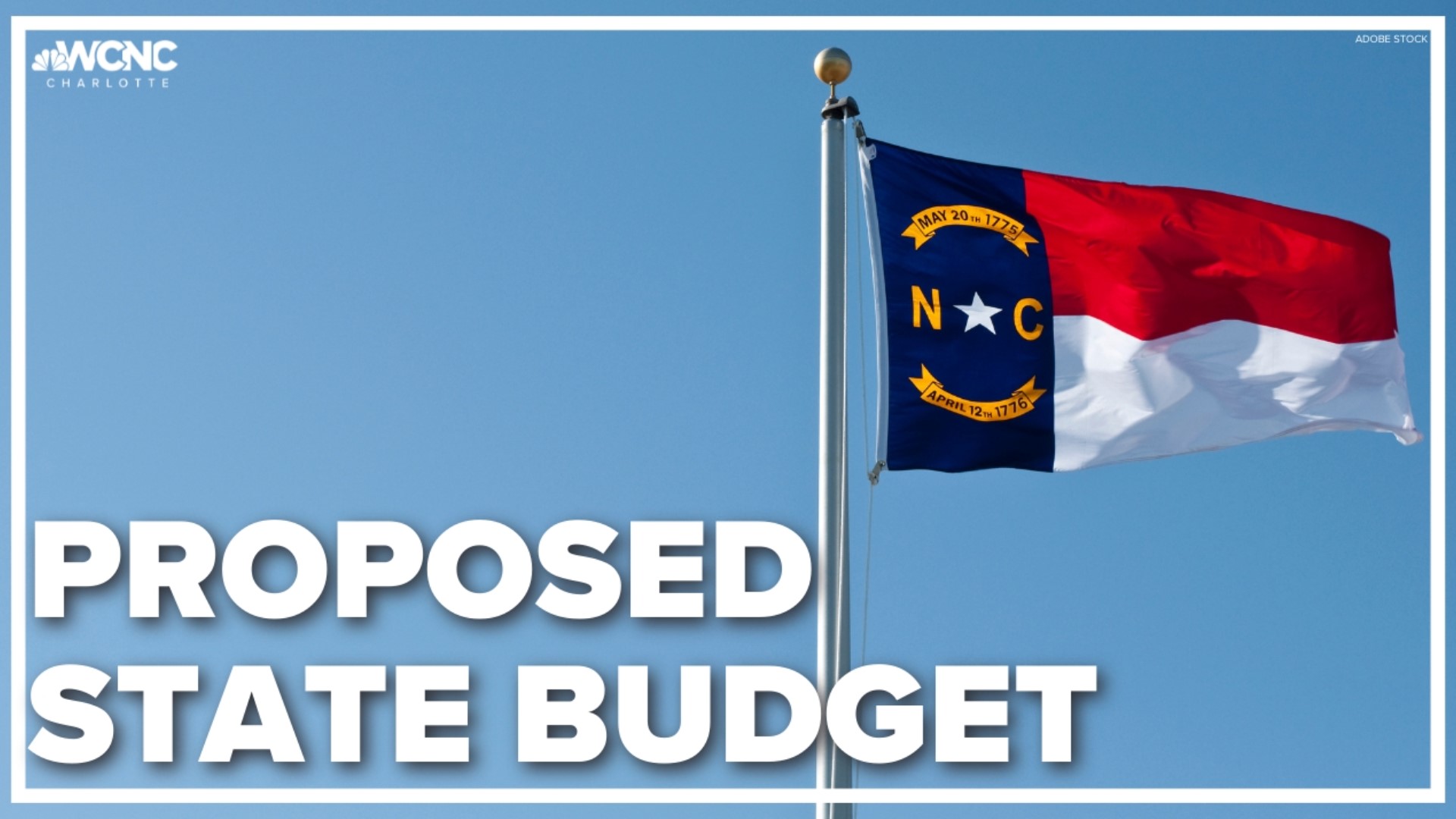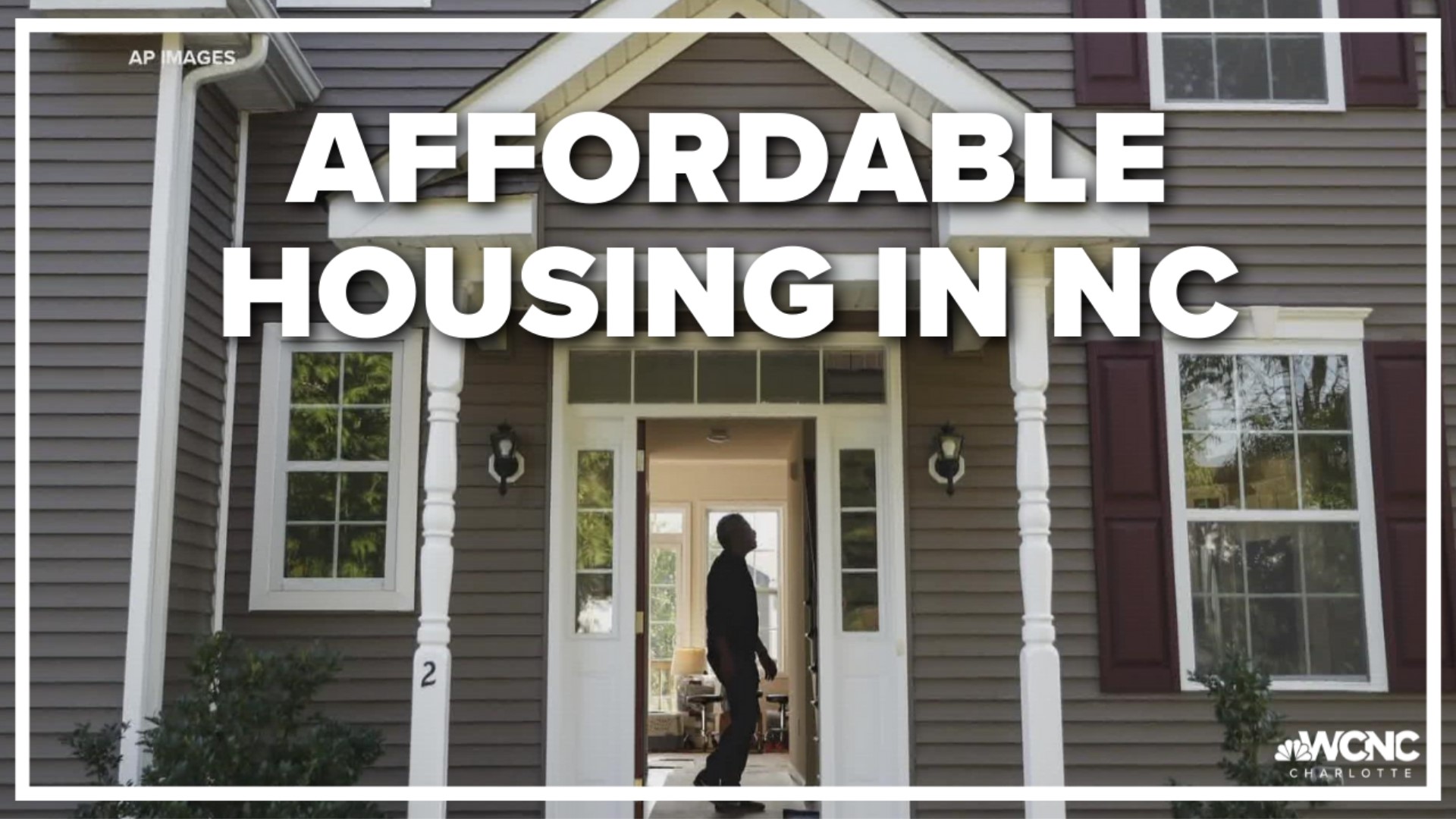RALEIGH, N.C. — North Carolina Gov. Roy Cooper said his proposed state budget for fiscal year 2022-2023 has sights set on everything from early childhood education to healthcare, while still cutting down on taxes. The price tag: $29,284,765,214.
Cooper was joined in a Wednesday afternoon news conference by Charlie Perusse, the state budget director, to discuss the details of the budget during an afternoon news conference. As he opened up his conference, Cooper applauded Republicans in the state General Assembly for working with Democrats and his office last year to come up with a budget and says they're doing the same thing in 2022.
This year's proposed budget, themed "Building on Success", includes an expansion in Medicaid, a key goal for Cooper after 2021's approved budget ended up not including it.
If Cooper's budget is approved with Medicaid expansion, his office estimates up to 600,000 North Carolinians could be covered. Cooper also claims Medicaid expansion would not require the use of state dollars.
Other investments Cooper included in his news conference included early childhood education, violence prevention, law enforcement and gun safety; and support for small businesses.
Key points from the proposed budget
Perusse said there were about $2.4 billion of unappropriated funds from the previous year to help boost the roughly $29.3 billion proposed budget. He also noted that $2.75 million would be set aside for relief for workers affected by the QVC distribution plant fire in Rocky Mount in December 2021.
According to the 232-page budget book, $38.7 million of the budget will focus on community and school safety, chiefly with programming and interventions to stop violent crime, promote safe gun storage, and provide boosts to existing funding for school safety grants. Of those funds, $10 million is dedicated to nonrecurring body camera grants.
More than $140 million of the proposed budget is dedicated to state clean energy initiatives, with the bulk of those funds targeting natural and working lands. Clean transportation, environmental justice, and energy efficiency are also included in this category.
Read through the full budget book below:
Roughly $525.8 million in funding under the recommended budget is aimed squarely at education initiatives, including the development of a talent pipeline for skilled educators and equitable distribution of financial resources.
Meanwhile, Cooper's proposed investment in North Carolina's economic development - which includes the QVC relief - totals at $166 million. Further, workforce expansion efforts include $120 million, including funds for boosting the number of healthcare workers.
Affordable housing was another key target in Cooper's budget, with $189 million proposed to meet the state's housing needs. Among the proposed allocations in this category is $50 million for enhanced down payment assistance for aspiring homeowners.
State employee compensation was broken down into two categories in the budget book: $691 million in recurring expenses and $863 in nonrecurring expenses, all to boost pay and retention for state employees and state-funded local employees. Retirees could also see a cost-of-living adjustment under this proposal. The total proposed price tag is roughly $1.5 billion.
Cooper's proposed state budget recommendation for Medicaid expansion claims no state dollars would be needed for it; the budget book says the federal government handles 90% of the cost, while hospital assessments and the Prepaid Health Plan premium taxes that health insurance companies in North Carolina pay would cover the remaining 10%. Cooper's budget book also claims this would help save North Carolina about $71 million annually.
The proposed budget also included increasing wages for essential caretakers, including those working in skilled nursing facilities and early childhood educators. $113.3 million is proposed in this section.
State agencies could also get $240 million for operational excellence, chiefly for emergency response and disaster relief. Of these funds, $10 million in nonrecurring monies is set aside for a contingency and emergency fund.
Comparing to the previous budget
The discussion of the budget comes about six months after Cooper signed an overdue budget into state law in November 2021. The previous $25.9 billion budget came with an average 5% raise over two years for teachers, along with a bonus using federal pandemic relief money. Cooper, a Democrat, found compromises with Republicans in North Carolina's General Assembly in what he called an "imperfect" budget then.
Nevertheless, he signed the state's first budget since 2018, because he said it also included much-needed spending on education and infrastructure.
Cooper did praise the budget he was presented in 2021 for the work from both sides of the aisle on it. It did not include Medicaid expansion as he originally hoped because it did not gain enough Republican support.
Groups respond to the proposed budget
The North Carolina Association of Educators (NCAE) praised Cooper's suggested budget, noting salary increases and support for low-income and at-risk students were part of the highlights for them.
"Following the unprecedented challenges educators faced over the last few years, we’re grateful to see Gov. Cooper propose these needed investments in our education system. For too long educators in our state have been forced to make do with too little, and we’re encouraged to see Gov. Cooper attempting to right those wrongs," said NCAE president Tamika Walker Kelly. “Among the highlights of Gov. Cooper’s budget proposal are much-needed salary increases and adjustments for educators, as well as a commitment to fund Leandro in its third year while providing $180 million in support to at-risk and low-income students. Given the latest state revenue projections, we feel confident that these are achievable goals."
North Carolinians Against Gun Violence (NCGV) also applauded Cooper's proposal for community violence intervention (CVI) programs and safe firearm storage initiatives. NCGV says 1 in 3 parents in North Carolina own a gun, but 1 in 4 guns are not stored properly. Becky Ceartas, the group's executive director, said they're hopeful for what could come of the budget if this funding is finalized.
"Specifically, Governor Cooper’s proposed budget would invest $5 million in community violence intervention programs, $1 million for gun locks, $200,000 for an educational safe storage awareness initiative, and $2.5 million in juvenile justice programs for youth violence prevention," said Ceartas in a statement. "CVI programs focus on individuals at the highest risk of violence and use prevention and intervention strategies to reduce violence and retaliation. They emphasize employing effective social services to address issues such as education, employment, substance abuse, trauma, and other root causes of gun violence, thereby preventing shootings in impacted communities."


